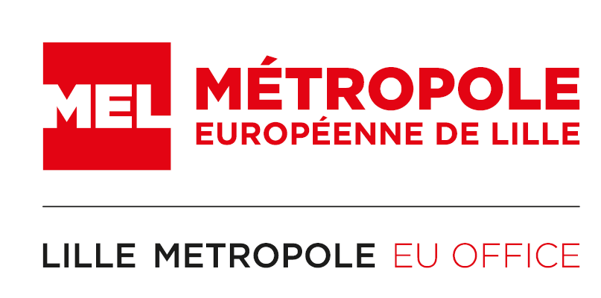
Eurocities culture Forum 2022 hosted by the City of Lille and Lille Metropole
The Eurocities Culture Forum brought together more than 200 participants from 55 cities and 19 European countries. The 3 days event took place a few days before the closing of the cultural season Utopia organised from 14 May until 2 October 2022, focusing on the link between man, art and the living environment.
Through various highlights, round tables, political speeches, city showcases, city walks, etc., the speakers and participants in the Culture Forum had the opportunity to discuss different questions: How can we make culture more sustainable and inclusive? How culture can help people in fighting against climate change? How can we make sure that everyone is included?
André Sobczak, Secretary General of Eurocities indeed highlighted the ambition that "EU policy integrates sustainability across policy fields, including culture".
Throughout the event, participants were able to see what the city of Lille and Lille Metropole are doing in terms of sustainable and resilient culture, notably thanks to the plenary sessions that took place at the Palais des Beaux-Arts and the Lille Metropolitan modern art museum (LaM). These topics were also highlighted through 5 pathways organised within the cities of Lille, Roubaix and Tourcoing on 5 different themes related to the forum:
- Linking urban and social resilience through cultural action
- Make cultural activities more inclusive
- Sustainability in performing arts and music
- Culture and the sustainable transformation of neighborhoods
- Conversion of heritage sites into cultural places
Participants discovered metropolitan venues such as l’Aeronef, le Zénith, the Opera of Lille, Saint-Sauveur, la Piscine, la Condition Publique and le Fresnoy, which are adapting their actions based on carbon footprint measurements and analysis and creating local collaborations for sustainable solutions. Le Zénith, for example, has launched a partnership with a company that transforms cigarette butts into textiles.
A strong idea that came out of the forum was that it is not just about installing alternative energy sources, using the circular economy, recycling, promoting public transport: it is also about changing perspectives, how culture can have an impact on ways of thinking and living.
As Lisa Broadest, Head of Operations and Enterprise at Leeds Museums and Galleries, said, "Cultural organisations need to thrive rather than grow (…) indeed; they need to stop producing culture through quickly replaceable exhibitions and stop using attendance as a performance indicator. Instead, they should offer long-term exhibitions with in-depth experiences, use the spaces they own in multiple ways and focus on taking art rather than people on a journey”.
The second strong idea that came up from the Forum is the idea of working together: "Let's work like in an ecosystem, without competition, but in cooperation," said Mathieu Boncour Director of sustainable development and communication at the Palais de Tokyo in Paris. Cooperation can take the form of agreements on how and when to move an exhibition from one venue to another or between cultural organisations and companies offering services in the form of sponsorship. For example, the Palais de Tokyo received free advice from local companies on how to become more sustainable, instead of a cash donation.
Finally, the forum also allowed cities to work together on common commitments. Martine Aubry, Mayor of Lille, launched a proposal for a call to Action on sustainable and inclusive culture that integrates potential actions that cities can take to support the ecological transition of the cultural sector and to ensure that everyone can participate in cultural activities.

